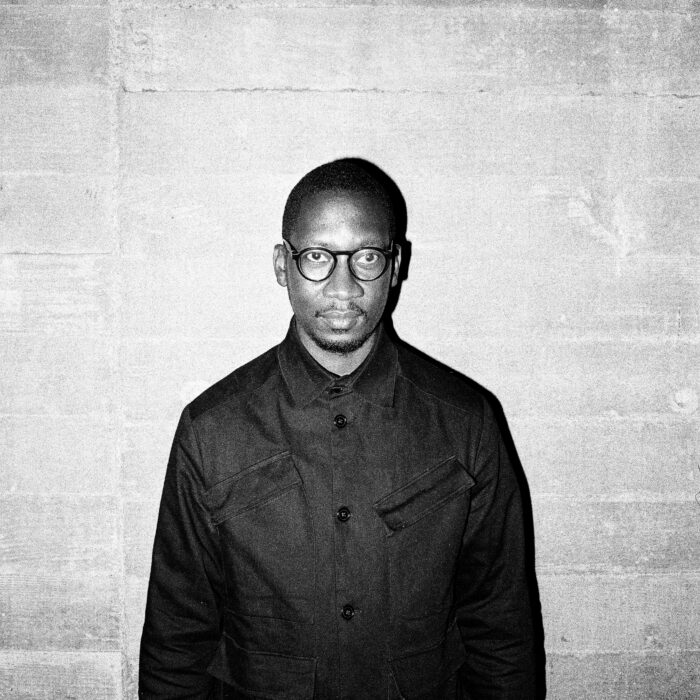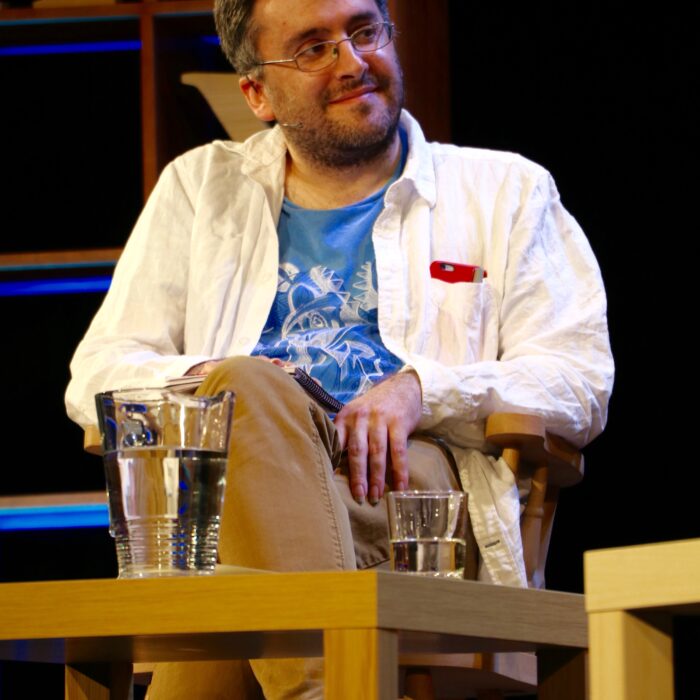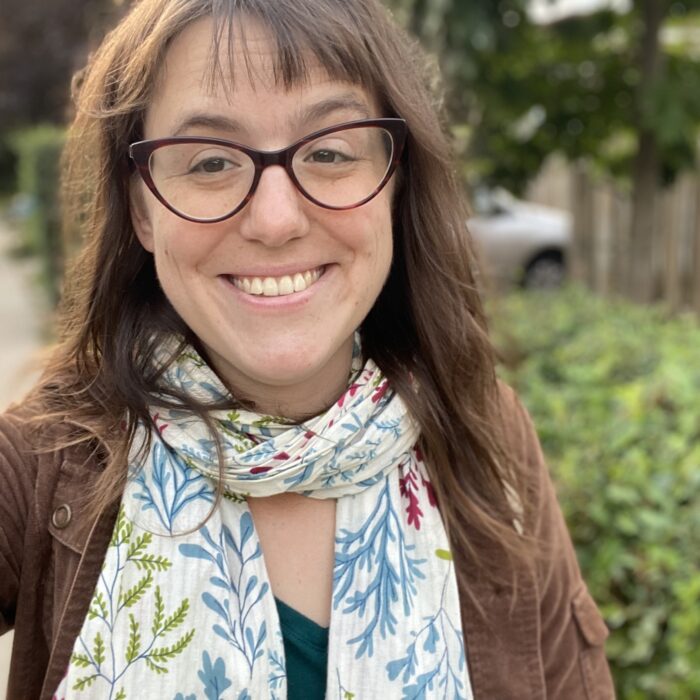You have no items in your cart. Want to get some nice things?
Go shoppingAuthor, performer, illustrator and 2014 BBC National Short Story Award judge Laura Dockrill on cakes and tea with fellow panellists, how Lionel Shriver’s winning entry Kilifi Creek is more than just a story, the art of shorter fiction, and the importance of a good night’s sleep.
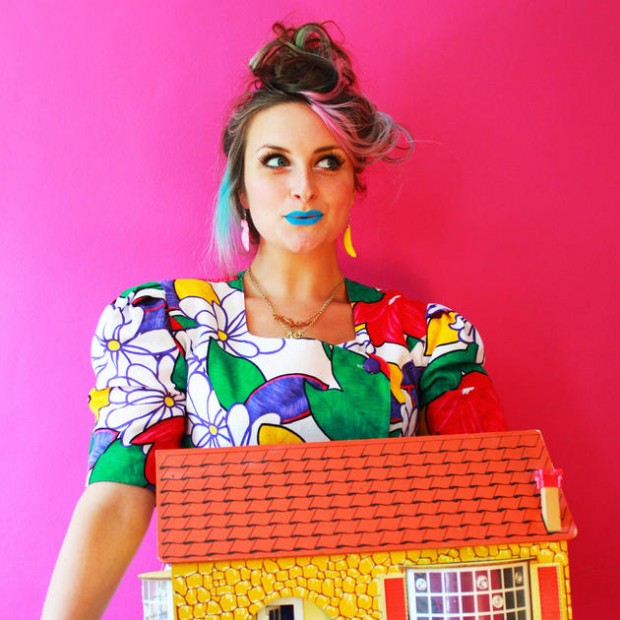
How was your experience as part of the judging panel?
Really tricky because some of the stories were thousands of words long. You can see lots of thought and time and effort has gone into each one and so your heart wants to love all of them — which is hard work when you are supposed to be sieving. I think what worked well was that all of us as judges are very different, with varied writing and reading styles, which meant the panel was fair, but we all had an appetite for finding that true stand-out story. We drank lots of tea, ate lots of cakes and had lots of big old rows over it.
What did you find particularly interesting or evocative about “Kilifi Creek”?
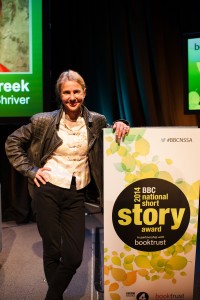
Lionel’s story was all about character, which is what I personally snuffle for as a reader and writer. Lionel managed to create a fresh young character that we hadn’t been overly exposed to in literature before yet still managed to make her believable and true enough for a reader to identify and say, “Yes, I know that girl.” The audacity and unawareness of her protagonist’s behaviour is what gave the story its many layers of complexity — evocative, as you say. Humorous, charming, relatable, unpredictable. And really what a true story is all about actually: carving a small fraction of the world out and pocketing it as a happening. How such a small event in life can change somebody forever and those are the events that we as humans don’t often talk about. Shriver makes you hook onto your own memories and instances and reflect which is what makes the story eternal. It stays with you. It’s more than a short story.
Who are your favourite short story authors?
I am a HUGE Roald Dahl fan (as I think anybody who knows me knows) and his adult collections of shorts are some of my all time favourite reads. I have always been a huge fan of fairytales and thought Angela Carter’s collection of shorts, The Bloody Chamber, is the most sophisticated and imaginative recreation of the classics. I could read Greek mythology forever and always love the re-telling of those too.
As an author, performer and poet (and more besides), does your approach to writing change at all when you begin work on a short story?
I approach all my work with the same attitude, feeling and mood. Whatever you are writing, the words must always belong to the character, story, and setting, and the form should always follow after. I like to remain creative during the process of writing until the very last minute when possible, otherwise it rinses the fun away from the piece. I also think that if a story or idea is strong, it should translate anyway across many platforms. I enjoy the journey of writing. I like the bacteria and mess inside the newness of a germ of an idea, being in the thick of it with words and characters up to my ears, and then I can decide how I want the story to be told. For example, I am writing a piece at the moment and still haven’t decided if it’s a play, film or start of a novel yet, but I know the character and I know what is going to happen. Keep it free and fun and creative for as long as possible.
Do you follow any rituals or superstitions as you’re about to get creative?
I believe that every day should be a new day. Different from the one before. It is not natural to treat a creative job like a factory because when you are relying on your brain to invent, and you don’t feel like inventing, you have to be able to give yourself freedom to do something different. You can poison your “art” sometimes if you are in a shitty mood or don’t feel up to the job. Routine actually really frightens me. I know what I like and what I need to make me work at my best but they are just the normal ingredients that make anybody work at their best: happiness, food, water, balance, security, confidence and a good night’s sleep but other than that no — no weird rituals. LOTS OF TEA, of course.
I think one of the reasons I have maintained this liberal way of working is growing up in a tiny flat with my family of five in Brixton. There was never a quiet moment or a space to write and so I learnt to transport myself amidst the madness and chaos of life, taking minutes to steal myself away in the awkward nook of a crowded armchair or in the scoop of a bunk bed. Writing with white noise, embracing interruptions, drinking everything up as inspiration rather than distraction.
What’s your most memorable on-stage moment?
There have been many amazing and terrible moments on stage but I think the first time my Dad came to watch me do a “proper” gig (as in when I got my show sorted) above a pub in Camden and he did a bit of crying and I remember the audience being split between watching me and watching him. I felt very proud that day.
Any advice for young or aspiring writers?
Be brave: share your work as much as possible, don’t hide it away. Take advice and criticism on the chin, but always with a pinch of salt (go with your gut.) You are in the driver’s seat, so abuse that position — have fun with your characters, put them through their paces. Push yourself, stretch yourself, be kind to others, make a community of writers that you can call and trust for ideas and suggestions and feedback. Read other people’s work too. Be inspired by not just books — look around you, everything is valid. Nobody knows everything.
What’s next?
A new Darcy Burdock book, the fourth in the series, called Oh, Obviously, then I am writing book five. I also am working on a young adult series and a play too. Also hanging out with my pug Pig, making granola and cookies, going to the dentist, fixing new doorknobs to my cupboards, brushing my hair, watering my plants, hanging with my sister Daisy and my husband Daniel, running in the park and reading a really scary book called The Brides of Rollrock Island by Margo Lanagan.
This interview has been edited.


